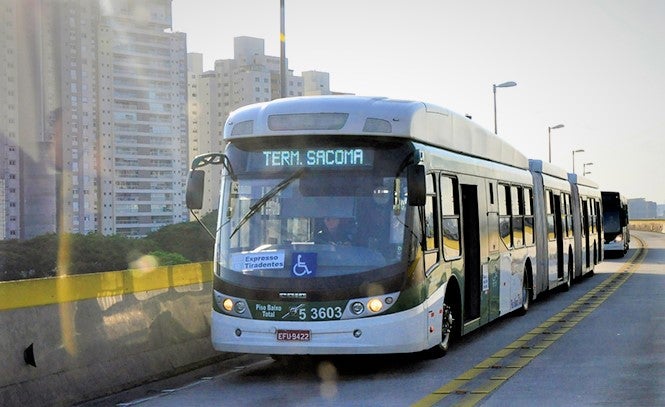
Também disponível em português.
While bus services are often planned and coordinated by public authorities, many cities delegate day-to-day operations to private companies under a concession contract. Local government agencies usually set fares and routes; private operators, on the other hand, are responsible for hiring drivers, running services, maintaining the bus fleet, etc. Within this general framework, the specific terms and scope of the contract vary widely depending on the local context.
Bus concessions are multimillion-dollar contracts that directly affect the lives of countless passengers every day. When done right, they can foster vigorous competition between bidders, improve services, lower costs, and generate a consistent cash flow. However, too often the concessions do not deliver on their promise and there is a perception across much of Latin America that authorities have been unable to manage these processes to maximize public benefits.
As several Latin American cities are getting ready to renew their bus concessions—including major urban centers like Bogotá, Santiago de Chile, and São Paulo—now is a good time to look back on what has worked, what has not, and think about ways to improve these arrangements going forward. Based on the experience of cities across the region, here are some of the principles that are critical to the success of bus concessions:
- Lower entry barriers to promote competition. Some cities in Latin America have had a tendency to negotiate primarily with existing operators, without creating the conditions for real competition; others have developed tendering processes whose requirements make it almost impossible for newcomers to win a bid, such as local service experience or access to infrastructure like depots and workshops. There are many legitimate reasons why it may be necessary to shield incumbent operators. But ultimately, only true competition with a level playing field can incentivize operators to increase efficiency, reduce costs, and improve service standards.
- Figure out the ideal contract length. Operators usually have an interest in getting contracts that are stable and as long as possible. Indeed, companies typically invest significant financial and human capital when starting operations in a new market, and need some time to be able to generate a fair return. Additionally, contracts that are too short may not allow operators to obtain financing for vehicles – bankers usually like to see concessions as long as the length of the loan they provide to finance buses. That said, it is rare to find bus loans with a tenor longer than 5 years. For cities, on the other hand, getting locked into long contracts may pose a number of risks, especially at a time when shifting mobility patterns and rapid changes in technology or fare collection systems call for increased flexibility. Cities such as London have found that contracts of 5 to 8 years are long enough to give operators a fair return on their capital and effort while preserving the interests of the city.
- Use carrots and sticks wisely. Most concessions include a system of financial penalties and rewards to ensure operators adhere to the performance standards defined in the contract, most notably frequency and regularity. This mechanism will only work if it is credible, enforceable, and can have a real impact on the operator’s revenue. Extreme or impractical penalties like contract termination are neither credible nor enforceable, unless there are other operators in the market who could readily take over. Likewise, fines that are too low will not deter operators from cutting back on services to reduce their operating costs.
- Adapt contracts to the type of service. Under a gross cost contract, operators are paid based on specific operational variables such as the number of kilometers logged. They can focus solely on providing service, while most of the risk is transferred to the city (fluctuating demand, fare evasion, etc.). This works best in high-capacity routes such as Bus Rapid Transit corridors, where authorities have the capacity and infrastructure to monitor the operator’s activity closely. In a city-wide system, however, this quickly becomes difficult to enforce. An alternative that can encourage operators to stick to their performance targets and cater to as many passengers as possible is net cost contracts, where the payment largely depends on the number of passengers transported. Hybrid solutions that try to combine operational variables and demand risks are also emerging.


Join the Conversation